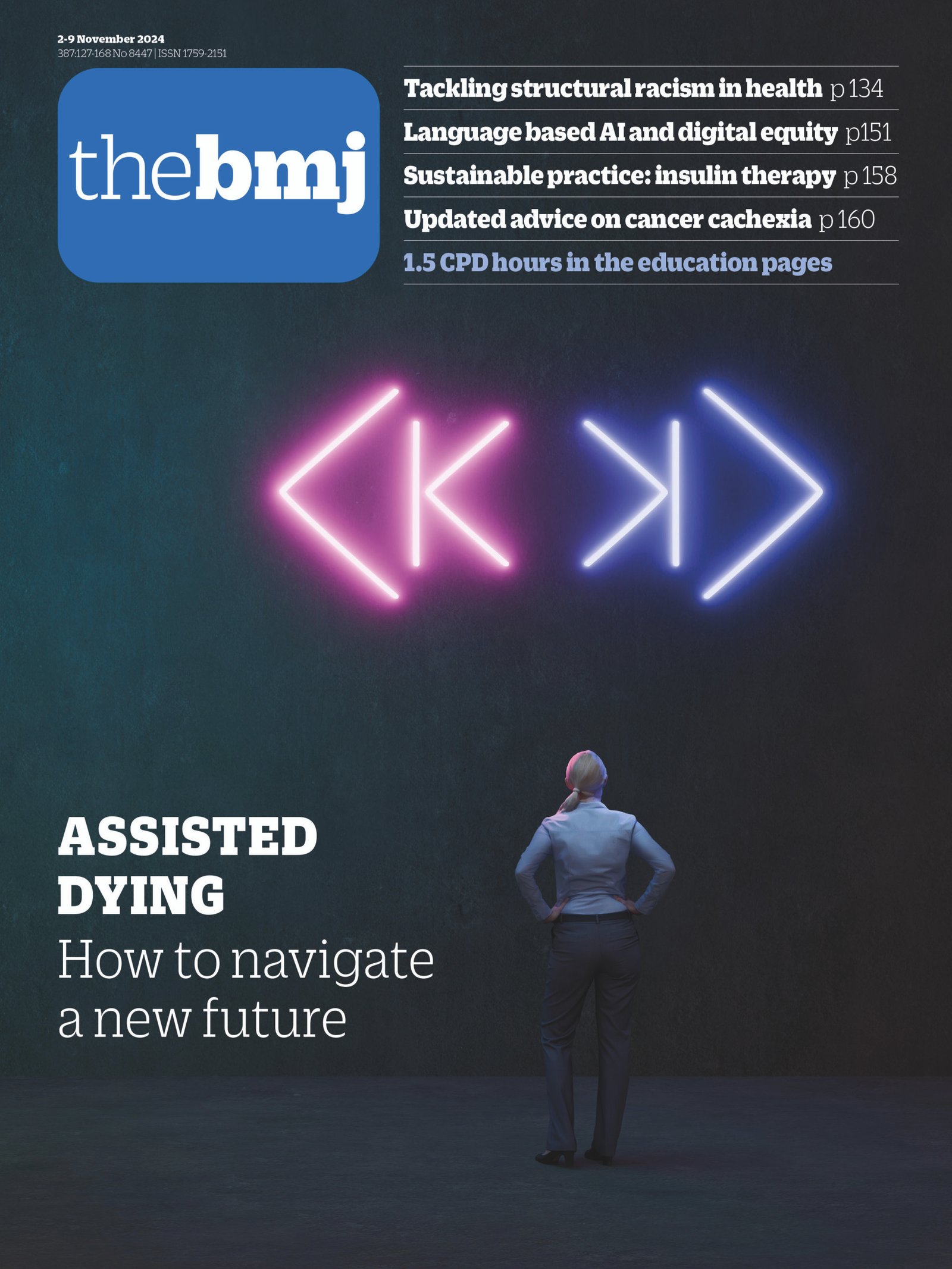
As a young researcher in psychiatry David Goldberg experienced two career defining revelations. The first was that the diagnostic system he had been taught was “top down,” dreamt up by committees of distinguished specialists in Geneva and Washington. “From then on, I was determined to be bottom up,” he said.1
The second came when he did research on a gastrointestinal unit. “To amuse the consultant, I would tell him things during our tea break that I had learnt about his patients. ‘How do you learn such fascinating things about patients I have been treating for years?’ he asked.”1
This innocent question stopped Goldberg in his tracks.
“What I had learnt was to allow patients to speak to me, and to listen to them,” he said.
Listening to patients—and teaching others how to do this—was the cornerstone of Goldberg’s career.
“Don’t guide the patient. Let the patient guide you,” was his unspoken mantra, says Dinesh Bhugra, emeritus professor of mental health and cultural diversity at the Institute of Psychiatry, Psychology, and Neuroscience at King’s College London.
In 1969 Goldberg moved to Manchester University where he eventually became head of the department of psychiatry and behaviour science. Here he implemented his ideas about the importance of listening and filmed consultations that would later be dissected by a lecture theatre of …







